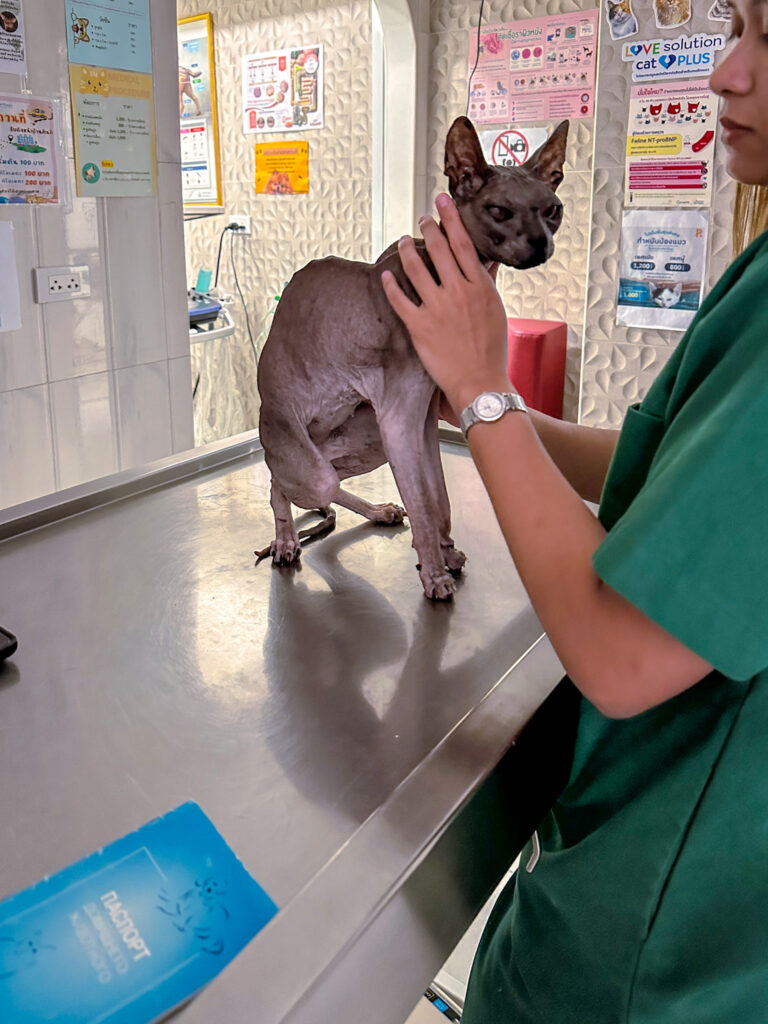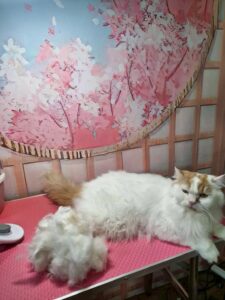Indoor cat vaccinations are often overlooked, but they remain one of the most critical aspects of feline health, even for cats that never leave the house. In Thailand, where cat ownership is booming and cat hotels are on the rise, understanding the importance of vaccinations for indoor cats is more important than ever.
Why Do Indoor Cats Need Vaccinations?
Many owners assume that indoor cats are safe from disease. But this is a common misconception. Indoor cat vaccinations are still essential because:
- Airborne viruses can enter through open windows or doors
- Humans can carry viruses into the home on shoes or clothing
- Other pets or insects can transmit diseases
- Emergencies (vet visits, boarding, escapes) expose cats to new environments
Vaccines prepare your cat’s immune system for these threats and reduce the risk of severe illness.
Core Vaccines Recommended for Indoor Cats
In Thailand, the most commonly recommended indoor cat vaccinations include:
- Rabies: Required by law in many areas and essential protection in case your cat comes in contact with wildlife like bats.
- FVRCP (Feline Viral Rhinotracheitis, Calicivirus, Panleukopenia): Known as the “distemper” shot, this protects against three common and serious feline viruses.
- FeLV (Feline Leukemia Virus): Optional for strictly indoor cats, but highly recommended if there’s any chance of escaping outdoors or coming into contact with other cats.
Vaccination Schedule for Indoor Cats
Proper timing matters when it comes to indoor cat vaccinations. Here’s what to expect:
Kitten Vaccinations:
- Begin at 6–8 weeks of age
- Booster shots every 3–4 weeks until 16 weeks old
Adult Cats:
- Boosters every 1–3 years depending on the vaccine and the cat’s lifestyle
- Annual checkups to reassess needs and health status
Your veterinarian will customize a vaccination plan based on your cat’s age, health, and risk factors.
How Cat Hotels Support Indoor Cat Health
If you ever board your cat at a hotel, indoor cat vaccinations become even more crucial. Cat hotels in Thailand typically:
- Require proof of up-to-date vaccinations before check-in
- Maintain strict hygiene to prevent cross-contamination
- Monitor cats for signs of illness during their stay
Lazy Cat Hotel, for example, prioritizes vaccination compliance to protect all feline guests and ensure peace of mind for their owners.
Want to book a safe stay for your vaccinated cat?
Check out our cat hotel in Phuket →
Debunking Myths About Indoor Cats and Vaccines
Let’s address a few common myths that put cats at risk:
❌ Myth: Indoor cats don’t need shots
✅ Truth: They can still be exposed through humans, insects, or unexpected outings.
❌ Myth: Vaccines are dangerous
✅ Truth: Side effects are rare, while protection against deadly diseases is significant.
❌ Myth: One vaccine lasts for life
✅ Truth: Immunity wanes. Boosters are essential for long-term protection.
Understanding the importance of indoor cat vaccinations helps you avoid preventable health issues.
Final Thoughts
Even if your cat never steps outside, indoor cat vaccinations are a must. They protect against invisible threats and form a critical part of a lifelong health plan.
In Thailand, with rising numbers of indoor cats and cat hotel stays, responsible owners should ensure their pets are fully vaccinated, monitored, and regularly checked by a vet.
Give your cat the healthiest life possible, and the peace of mind you deserve.







